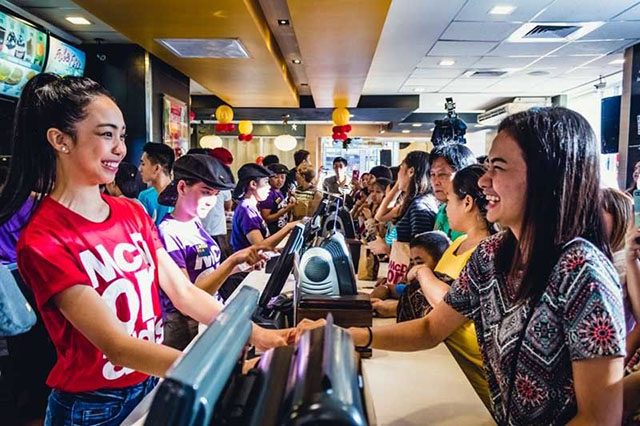
A popular fast food chain amused Filipinos when they categorized customers based on the status of their love lives in cashier lanes in anticipation of Valentine’s Day.
Several social media users shared pictures of different McDonald’s branches with cashier lanes of different labels such as “single,” “in a relationship,” and “heartbroken,” among others.
Each branch has its own labels since there were additional lanes that tagged customers as “umaasa” (hoping), “pinaasa” (led on) and “na-zoned” such as “Friend Zone,” “Kuya/Ate Zone” and “HAHAZone.”
While the gimmick generally received laughs, some Filipinos commented that they would rather line up in cashier lanes that have a shorter queue.
Kung saan mas konti ang pila. Wala akong pake sa label ng mga lane nayan. Basta ako gutom na.
— 𝓖𝓮𝓵𝓲𝓬𝓪✨ (@Glcsgn) February 9, 2019
Kung saan konti lang yung pila, nagugutom na ko poproblemahin ko pa ba yan.
— Zach👑 (@iace_ge) February 9, 2019
The exact date when the fast food chain launched its gimmick is unknown, although the earliest post so far was shared on February 5 by Facebook user Juan Calbayog.
Filipinos most romantic and emotional
The gimmick might not be surprising since Filipinos emerged as the fourth most romantic lovers in the Asia-Pacific region, based on a 2016 survey by a global payments firm.
“Three of five Filipinos plan to buy a gift for their beloved on Valentine’s, making them the fourth most romantic people in the region, next only to the Thais, the Chinese and the people of Hong Kong,” a report notes.
Apparently, Valentine’s Day is more popular in Asian countries like Thailand, China, and Malaysia rather than New Zealand and Australia—countries that are recognized for traditionally celebrating the occasion.
“In China and Vietnam, it is even considered the preferred day to propose or receive a marriage proposal. The spread of Valentine’s Day shows that everyone likes to take the opportunity to celebrate love, buy presents and share experiences with those they care about the most,” Eric Schneider, the Asia-Pacific region head of the firm that conducted the survey, observed.
A different 2017 survey indicated that Filipinos are among the world’s most emotional as well, based on a global emotions report released by a polling firm.
The country came fourth in the “Total Emotions” index with 56 percent of respondents saying they are emotional. The index measured how much positive and negative experiences in different matters affect societies.
The firm observed that “30 percent of an individual’s behavior is “rational — (and) the other 70 percent is emotional.”









